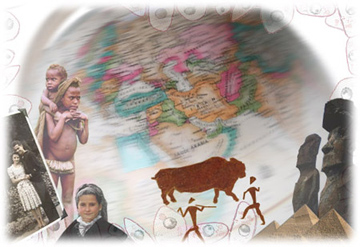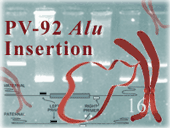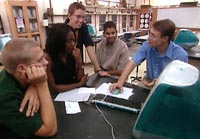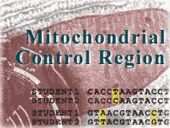|
|
||
|
|||
 |
|||
This site provides biochemical methods and computer tools to allow students to use their own DNA "fingerprints" as a starting point in the study of human evolution. Two experiments are currently available, which are supported by reagents and ready-to-use kits available from Carolina Biological Supply Company. |
|
CLICK ON ONE EXPERIMENT TO BEGIN: |
||
|
|
 Alu
Insertion Polymorphism detects the presence
or absence of a "jumping gene" on chromosome 16. This simple genetic system
has only two alleles and three genotypes. Despite this simplicity, allele
frequencies vary greatly in different world populations. Alternate explanations
about the causes of this variation are consistent with opposing theories
of the origins of modern humans. Alu
Insertion Polymorphism detects the presence
or absence of a "jumping gene" on chromosome 16. This simple genetic system
has only two alleles and three genotypes. Despite this simplicity, allele
frequencies vary greatly in different world populations. Alternate explanations
about the causes of this variation are consistent with opposing theories
of the origins of modern humans. |
|
|
|
||





